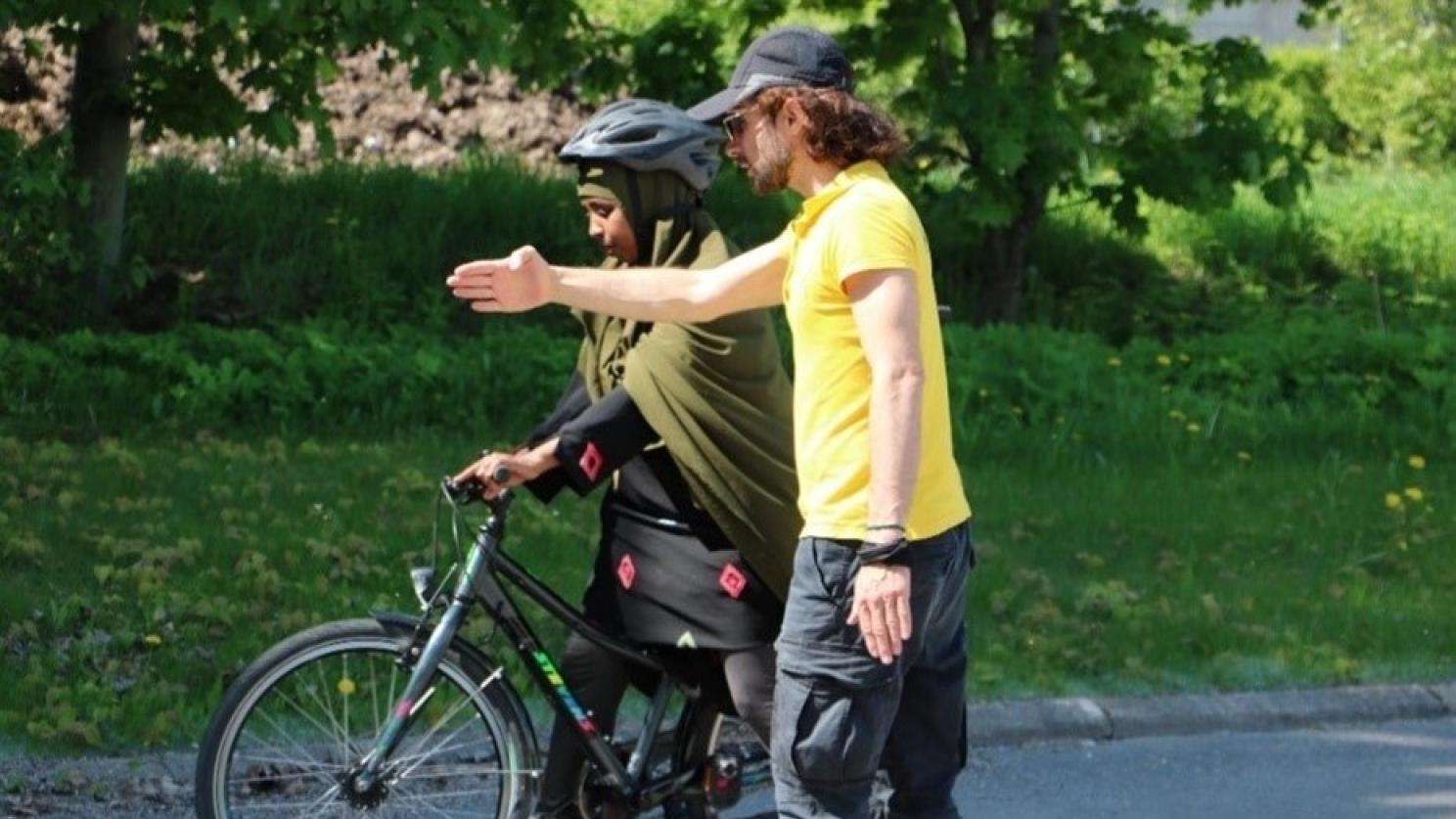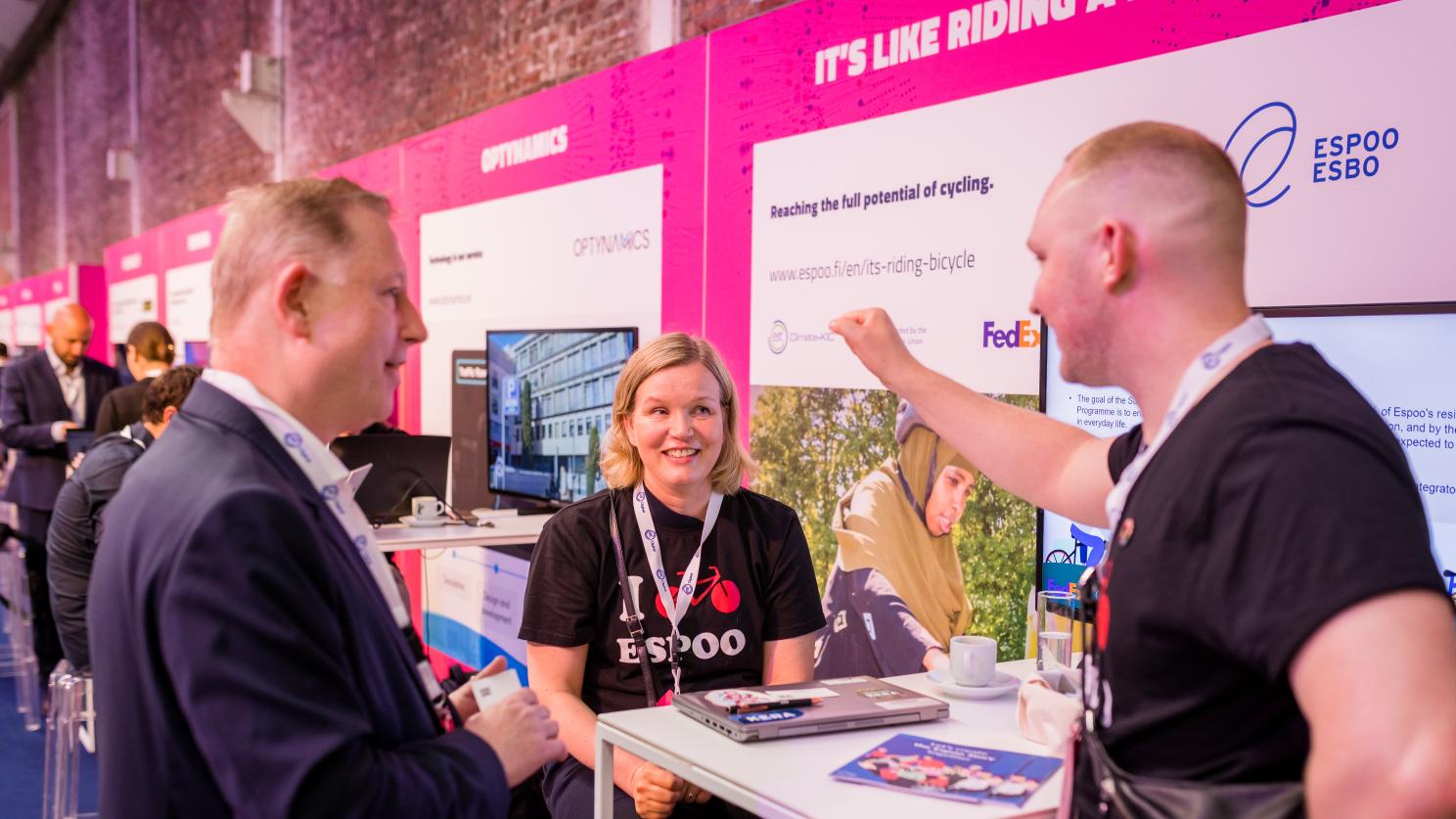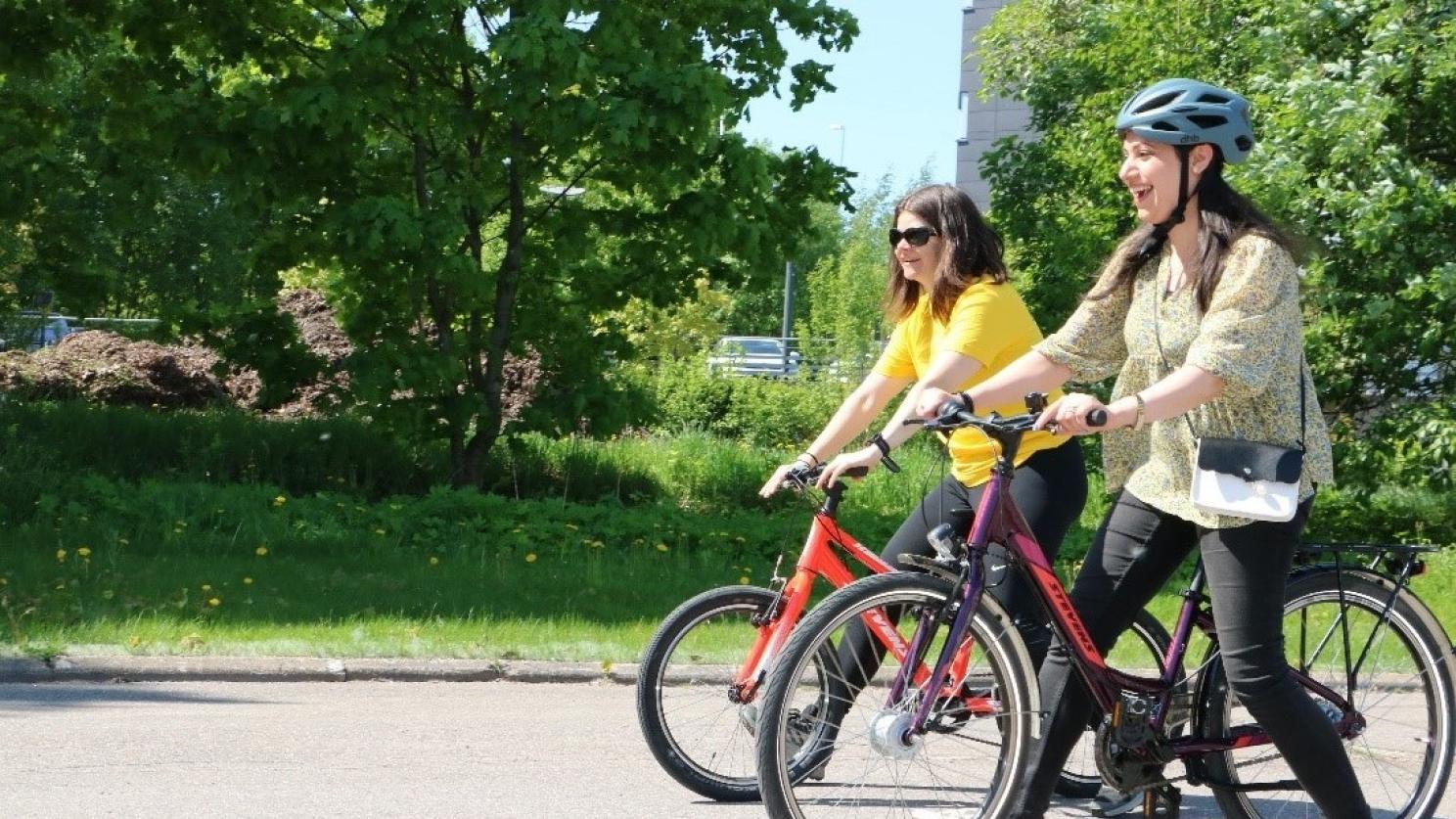A Finnish city’s plan to promote inclusive cycling
FedEx sponsored Climate-KIC and EIT Digital’s Sustainable Cities Climate Impact Challenge in 2023. Four cities were selected, including Espoo, Finland, one of the 100+ Net Zero Cities with a goal to be carbon neutral by 2030. The following story and video were created by the EIT Climate-KIC team.
With a population of over 305,000 residents, the city of Espoo, Finland touts the best of both worlds: a unique combination of urban and nature. Its stunning outdoor landscapes fused with a vibrant city centre makes it ideal for cycling. But not all residents have equal opportunity to this mode of transport. Those with an immigrant background (around one-fifth of the population) have faced barriers to accessible cycling due to cultural or other reasons.
“This is particularly true for women and girls who may have never had access to bicycles or the opportunity to learn how to ride one,” explains Veli-Pekka Korhonen, Sustainable Mobility Specialist at the City of Espoo.
Korhonen is leading an initiative that promotes social inclusion, gender equality and supports local bicycle repair businesses. This green mobility project was one of four selected for the Sustainable Cities Climate Impact Challenge, organised by EIT Climate-KIC and EIT Digital, and sponsored by FedEx.

“We understand the importance of empowering individuals with the skills and confidence to ride a bicycle, enabling them to enjoy the benefits of sustainable mobility. Therefore, we offer workshops where dedicated teachers guide the participants through the learning process,” he says.
In collaboration with the Helsinki Region Cyclists, the City of Espoo organised cycling courses in five different locations from June to August 2023. The project has received an overwhelming response from residents with 84 participants trained and counting.
But as Korhonen explains, “The impact goes beyond simply teaching people how to ride a bike. They have come to realise that biking provides a newfound sense of freedom and flexibility, allowing individuals to travel from A to B whenever they want to.”
To encourage cycling after the courses, the participants were offered a “graduation gift” of a complementary subscription to the city bikes in Espoo and Helsinki or a voucher covering bicycle maintenance.

The City of Espoo also acquired six workspaces and a mobile “repair café” during the month of August where residents could learn bike maintenance skills while boosting the local businesses that provide those services.
“This project has brought us great joy,” adds Korhonen. “To see the happiness and excitement of individuals as they learn to ride a bike has been truly rewarding. It highlights the positive impact such initiatives can have on peoples’ lives, fostering a sense of accomplishment and empowerment. We are grateful for the opportunity to contribute to the well-being of our community.”
The project contributes to the city’s larger decarbonisation strategy known as the “Espoo Story,” which aims to achieve carbon neutrality by 2030. Because one-third of its CO2 emissions originate from traffic, the city council has made addressing transportation-related emissions a high priority.
EIT Climate-KIC and FedEx recently announced the launch of the second edition of the Sustainable Cities Mobility Challenge (formerly called the Climate Impact Challenge) for European cities. Applicants are invited to request funding to implement solutions that accelerate the transition towards cleaner, sustainable, and inclusive mobility.
Challenge Website: Sustainable Cities Mobility Challenge - Climate-KIC

